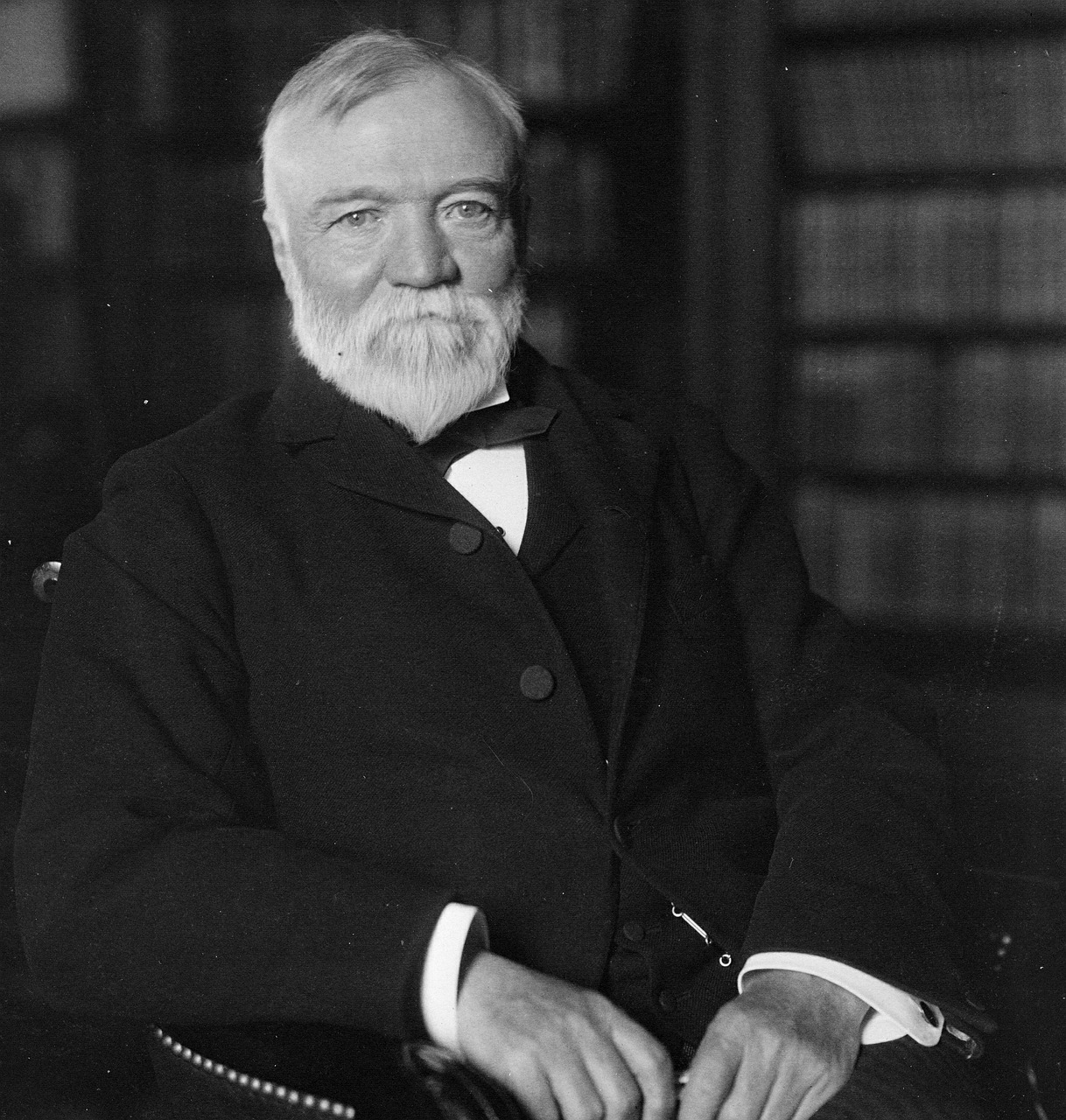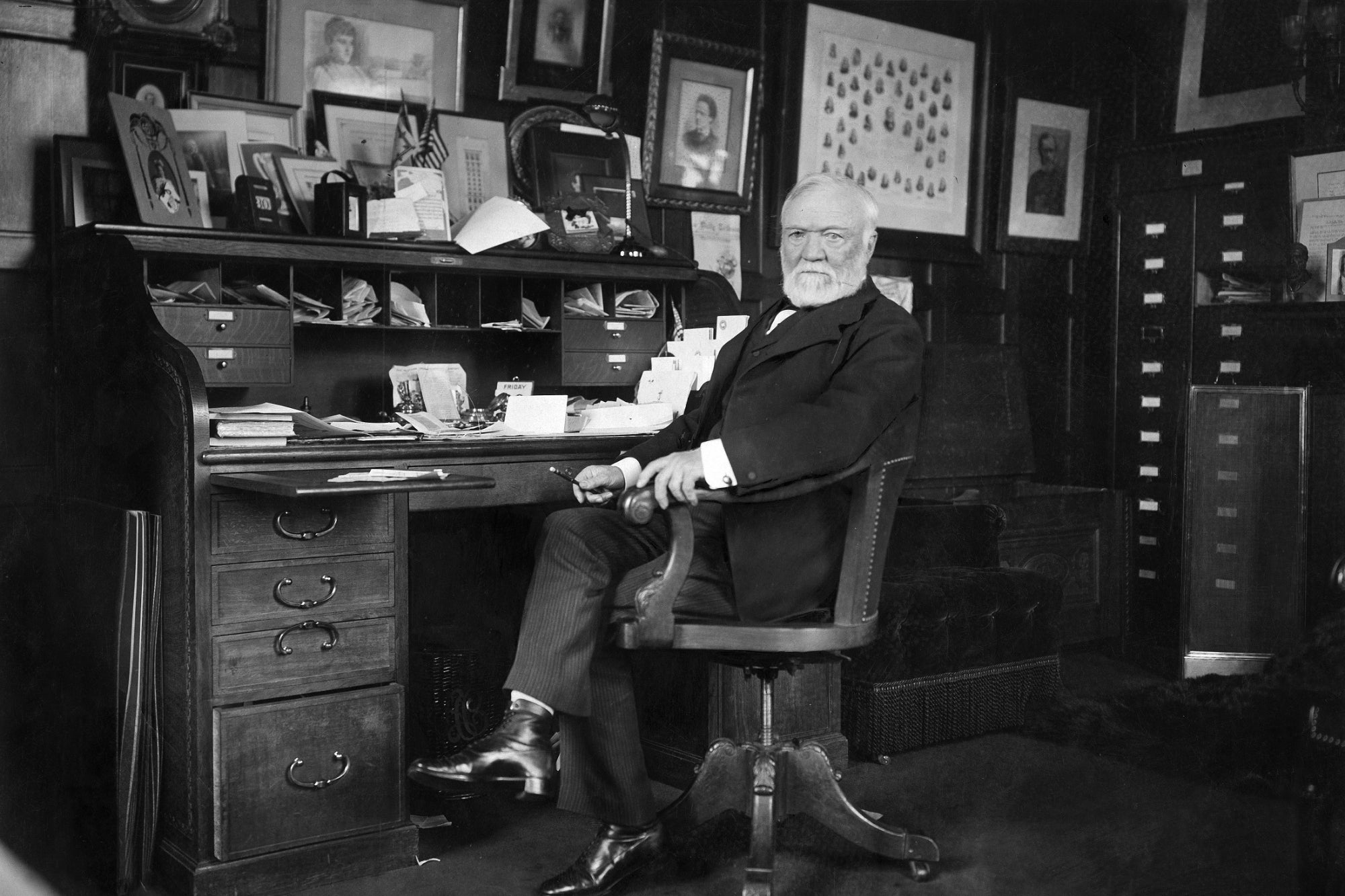As much as Andrew Carnegie's name is synonymous with steel, it is also synonymous with philanthropy. Carnegie, the Scottish-American industrialist, was one of the richest men in the world in the late 19th and early 20th centuries, and he used his wealth to fund libraries, universities, and other institutions that would benefit the public.
Editor's Notes: "Carnegie: The Steel King And Philanthropist Who Shaped America" have published today date. With everything that's going on in the world today, it's more important than ever to understand the history of philanthropy and the role that it can play in shaping our society.
To help you understand Carnegie's life and work, we've put together this guide. In this guide, we'll discuss Carnegie's early life, his rise to success in the steel industry, and his philanthropic work. We'll also provide some key takeaways that you can apply to your own life.
Key differences or Key takeways
Transition to main article topics
FAQ
This section provides comprehensive answers to frequently asked questions about Andrew Carnegie, the renowned industrialist and philanthropist of the late 19th and early 20th centuries. By addressing common misconceptions and concerns, we aim to enhance understanding of Carnegie's legacy and significant impact on American society.

Lucy Furnaces: A Historic Steel Mill in Duquesne, PA - Source www.pinterest.com.mx
Question 1: How did Carnegie amass his vast wealth?
Carnegie's fortune primarily stemmed from his success in the steel industry. He recognized the potential of steel production during the Industrial Revolution and invested heavily in modernizing and consolidating the industry. Through his company, Carnegie Steel Company, he became a dominant force in the global steel market.
Question 2: What were Carnegie's philanthropic beliefs?
Carnegie believed that individuals with great wealth had a moral obligation to give back to society. He famously declared, "The man who dies rich dies disgraced." His philanthropy was guided by the principle of "scientific philanthropy," emphasizing the effective use of resources to address social problems.
Question 3: What were Carnegie's major philanthropic contributions?
Carnegie's philanthropy had a profound impact on fields such as education, culture, and social welfare. He established over 2,500 public libraries across the United States, founded the Carnegie Corporation of New York (now the Carnegie Corporation), and created the Carnegie Institution for Science. Additionally, he supported universities, museums, and other cultural institutions.
Question 4: How did Carnegie's philanthropy shape American society?
Carnegie's philanthropic vision played a significant role in shaping American society. His libraries fostered literacy and lifelong learning, his support for education created opportunities for generations of students, and his cultural institutions enriched the lives of countless Americans. His emphasis on scientific philanthropy set a precedent for effective and impactful charitable giving.
Question 5: What criticisms were leveled against Carnegie's business practices?
Carnegie's business practices were not without criticism. He was accused of ruthless competition, exploiting labor, and amassing excessive wealth at the expense of workers. The Homestead Strike of 1892, a violent labor dispute at his steel mill, remains a controversial chapter in his legacy.
Question 6: How is Carnegie remembered today?
Andrew Carnegie is remembered as a complex and influential figure in American history. He was a brilliant industrialist whose business acumen transformed the steel industry. As a philanthropist, his legacy continues to shape education, culture, and social welfare in the United States and beyond. While his business practices have been criticized, his philanthropic vision remains an enduring testament to his belief in the power of giving.
Carnegie's legacy inspires us to consider the responsibilities that come with wealth and the potential for philanthropy to create lasting positive change. By understanding the complexities of his life and work, Carnegie: The Steel King And Philanthropist Who Shaped America, we gain a deeper appreciation for the impact of individuals on society.
This FAQ section has provided insights into Carnegie's business practices, philanthropic beliefs, and lasting impact on American society. By addressing common questions and misconceptions, we have aimed to enhance our understanding of this multifaceted historical figure.
Tips by Carnegie

A Look at Andrew Carnegie, Industrialist and Philanthropist - West - Source www.westyorkssteel.com
Carnegie's life experiences and philanthropic endeavors offer valuable lessons for personal and professional growth. Here are some tips based on his principles:
Tip 1: Set Clear Goals and Prioritize
Carnegie believed in establishing well-defined goals and prioritizing tasks based on their importance. By focusing on the most critical objectives, individuals can maximize their productivity and achieve success.
Tip 2: Embrace Self-Education
Carnegie emphasized the importance of lifelong learning. He actively sought knowledge through reading, attending lectures, and engaging with experts. Continuous learning keeps the mind sharp and adaptable to changing circumstances.
Tip 3: Build Strong Relationships
Carnegie recognized the value of building and maintaining positive relationships. He encouraged individuals to collaborate with others, support their peers, and surround themselves with those who inspire and challenge them.
Tip 4: Lead with Integrity
Integrity was paramount to Carnegie. He believed that ethical behavior and honest dealings are essential for building trust and earning respect. Acting with integrity fosters a positive work environment and sets a high standard for others.
Tip 5: Give Back to Society
Carnegie was known for his philanthropy. He believed that those who have achieved success have a responsibility to support their communities and the less fortunate. Investing in causes that resonate with personal values can create a lasting impact.
These principles continue to inspire and guide individuals today. By incorporating these tips into their lives, they can cultivate success, make a positive impact on the world, and live a life of purpose and fulfillment.
Carnegie: The Steel King And Philanthropist Who Shaped America
Andrew Carnegie, a Scottish-American industrialist, revolutionized the steel industry, amassed vast wealth, and became one of the most influential philanthropists in American history. His legacy encompasses both his industrial prowess and his unwavering commitment to social and educational causes.

Andrew Carnegie — Industrialist and Philanthropist | Hero of Capitalism - Source exploringcapitalism.com
- Industrial Pioneer: Carnegie's innovations in steel production transformed the industry.
- Philanthropic Giant: He donated much of his wealth to establish libraries, universities, and museums.
- Gospel of Wealth: Carnegie believed the wealthy had a moral obligation to give back to society.
- Carnegie Steel Company: His company became the largest steel producer in the world.
- Carnegie Foundation: This organization continues to support education and research.
- Social Justice Advocate: Carnegie promoted workers' rights and supported labor unions.
Carnegie's influence extended far beyond industry and philanthropy. His belief in the power of education and social uplift shaped American society. His philanthropic endeavors created countless opportunities for advancement and laid the foundation for future generations of innovators and leaders.
Carnegie: The Steel King And Philanthropist Who Shaped America
Andrew Carnegie was a Scottish-American industrialist who played a key role in the development of the American steel industry. He was also a philanthropist who donated much of his wealth to charitable causes. Carnegie's life and career are a testament to the power of hard work, innovation, and giving back to the community.

America’s Man of Steel: Andrew Carnegie’s Life of Wealth & Legacy of - Source checksbalances.clio.nl
Carnegie was born in Dunfermline, Scotland in 1835. His family was poor, and Carnegie had to start working at a young age. He eventually emigrated to the United States in 1848, where he worked in a number of different jobs before becoming involved in the steel industry. In 1875, Carnegie founded Carnegie Steel Company, which quickly became one of the largest steel companies in the world. Carnegie was a brilliant businessman, and he used his wealth to invest in new technologies and expand his company. He also believed in the importance of giving back to the community, and he donated millions of dollars to libraries, schools, and other charitable causes.
Carnegie's legacy is complex and controversial. He was a ruthless businessman who used his power to crush his competitors. However, he was also a generous philanthropist who made significant contributions to American society. Carnegie's life and career provide valuable lessons about the power of capitalism, the importance of philanthropy, and the challenges of balancing personal ambition with social responsibility.
Conclusion
Andrew Carnegie was a complex and controversial figure, but there is no doubt that he was one of the most influential Americans of his time. His legacy as a steel king and philanthropist continues to inspire and challenge us today.
Carnegie's life and career offer a number of important lessons, including the importance of hard work, innovation, and giving back to the community. Carnegie's story is a reminder that even the most humble beginnings can lead to great success. It is also a reminder that wealth and power can be used for good, and that those who have been fortunate have a responsibility to help others.